#Nelson Hayne
Text
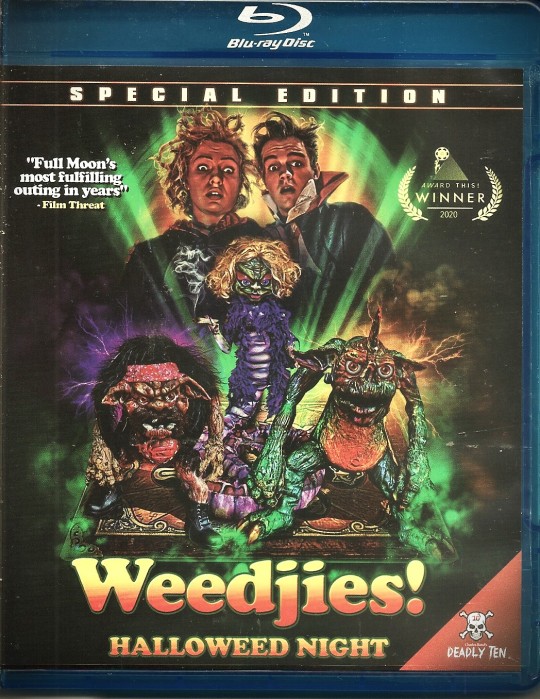
Bad movie I have Weedjies!: Halloweed Night 2019
#Weedjies!: Halloweed Night#Brett Hargrave#Victoria Strange#Y#Johnny Jay Lee#Denise Milfort#James Adam Tucker#Nelson Hayne#Derek Petropolis#Chad Ridgely#Roy Abramsohn#Shellie Sterling#Sebastian Fernandez#Cody Renee Cameron#Paul Stanczak#Mateo Amieva#Sophie Bell#Aaron Groben#Jeff Bratz#The Don#Alexander Rain#Leya Falcon#Michael Airington#Christopher Arredondo#Walid Atshe#Emerita Barraza#Gary Brown#Douglas Cambron#Jeffry Chang#Richard Christy
3 notes
·
View notes
Text
Oliver Edward Nelson (June 4, 1932 – October 28, 1975) was an American jazz saxophonist, clarinetist, arranger, composer, and bandleader.
He is perhaps best remembered for his groundbreaking 1961 Impulse! album The Blues and the Abstract Truth, widely regarded as one of the most significant American jazz recordings of the modern jazz era. The album features the definitive version of the jazz standard "Stolen Moments". Other important recordings from the early 1960s are More Blues and the Abstract Truth and Sound Pieces, both also on Impulse!

(English / Español)
Oliver Edward Nelson (4 de junio de 1932 - 28 de octubre de 1975) fue un saxofonista, clarinetista, arreglista, compositor y líder de banda estadounidense.
Quizá se le recuerde más por su innovador álbum por Impulse! de 1961 The Blues and the Abstract Truth, ampliamente considerado como una de las grabaciones de jazz estadounidenses más importantes de la era del jazz moderno. El álbum presenta la versión definitiva del estándar de jazz "Stolen Moments". Otras grabaciones importantes de principios de la década de 1960 son More Blues y Abstract Truth y Sound Pieces, ambas también en Impulse!
Source: The World of Jazz - The Original
Photo by Jan Persson
youtube
Tracklist:
0:00 Stolen Moments
8:44 Hoe-Down
13:24 Cascades
18:51 Yearnin
25:13 Butch and Butch
29:46 Teenie's Blues
Credits:
Oliver Nelson: Arranged By, Composed By, Liner Notes, Tenor Saxophone, Alto Saxophone
Eric Dolphy: Alto Saxophone, Flute
George Barrow: Baritone Saxophone
Paul Chambers: Bass
Roy Haynes: Drums
Freddie Hubbard: Trumpet
Bill Evans: Piano
#jazz#hard bop#modal#oliver nelson#bill evans#freddie hubbard#roy haynes#paul chambers#george barrow#eric dolphy#Youtube
13 notes
·
View notes
Text
The Genius of Oliver Nelson: A Trailblazer in Jazz Composition and Arranging
Introduction:
Oliver Nelson, a name synonymous with innovative jazz composition and sophisticated arranging, carved out a unique and influential space in the world of jazz. Born ninety-two years ago today on June 4, 1932, in St. Louis, Missouri, Nelson’s legacy encompasses a prolific career as a saxophonist, composer, arranger, and bandleader. His contributions to jazz extend beyond his…

View On WordPress
#Afro/American Sketches#Bill Evans#Columbo#Count Basie#Duke Ellington#Elliott Carter#Eric Dolphy#Erskine Hawkins#Freddie Hubbard#George Tremblay#Ironside#Jazz Composers#Jazz History#Jazz Saxophonists#Louie Bellson#More Blues and the Abstract Truth#Oliver Nelson#Patterns for Improvisation#Paul Chambers#Quincy Jones#Robert Wykes#Roy Haynes#Sound Pieces#The Blues and the Abstract Truth#The Six Million Dollar Man#Wild Bill Davis
4 notes
·
View notes
Text

We Built This City
“Acquiring an education is about more than earning a diploma. It’s also about your friends, who have seen you in your worst moments and love you just the same.”
#degrassiedit#peter stone#darcy edwards#liberty van zandt#toby isaacs#emma nelson#manny santos#damian haynes#my edit#my edits#my collage#my collages#degrassi
17 notes
·
View notes
Text
youtube
Song Review: Willie Nelson and Friends - “On the Road Again” and “Happy Birthday” (Live, April 30, 2023)
Just when it seems the world can’t possibly use another version of “On the Road Again,” Willie Nelson releases an “On the Road Again” the world didn’t know it needed.
Recorded April 30, 2023, at the Hollywood Bowl with a bunch of friends - the Avett Brothers, Sheryl Crow, Warren Haynes, Jamey Johnson, Lyle Lovett, the Lumineers, Lukas Nelson, Kris Kristofferson, Jack Johnson, Rosanne Cash, Beck and Charley Crockett among them - and paired with “Happy Birthday,” this iteration is full of irresistible joy and wobbly harmony.
Despite the number of singers and players, Nelson, who turned 90 that day, remains in charge, singing the words strongly and coaxing yet another behind-the-beat solo from his trusty sidekick, Trigger. Everyone sings along lustily before it careens to a close and a raucous “Happy Birthday” emerges in its wake.
The cut follows Avetts’ take on “Pick up the Tempo” and Dave Matthews’ performance of “Funny How Time Slips Away” from “WIllie Nelson 90: Live at the Hollywood Bowl,” which will be released Dec. 15 in audio and video formats.
Grade card: Willie Nelson and Friends - “One the Road Again” and “Happy Birthday” (Live - 4/30/23) - A+
12/7/23
#Youtube#willie nelson#willie nelson 90#the avett brothers#warren haynes#gov’t mule#the allman brothers band#jack johnson#jamey johnson#kris kristofferson#rosanne cash#the lumineers#lukas nelson#dave matthews#lyle lovett#sheryl crow#beck#charley crockett
4 notes
·
View notes
Video
youtube
Oliver Nelson - The Blues And The Abstract Truth - 01 - Stolen Moments
For those who haven’t but would like to build a jazz library, this is a foundational work.
Oliver Nelson plays the solo of his life on “Stolen Moments.” The very essence of “blue.”
It is claimed that the album was a major influence on Donald Fagen.
Oliver Nelson – alto saxophone, tenor saxophone..... Eric Dolphy – flute, alto saxophone..... George Barrow – baritone saxophone.... Freddie Hubbard – trumpet.... Bill Evans – piano..... Paul Chambers – bass.... Roy Haynes – drums....
#Oliver Nelson#The Blues and the Abstract Truth#Eric Dolphy#Freddie Hubbard#Bill Evans#Roy Haynes#Paul Chambers#Jazz
6 notes
·
View notes
Text

The Blues and the Abstract Truth, Oliver Nelson, 1961
#The blues and the abstract truth#oliver nelson#jazz#60's jazz#jazz standards#bill evans#roy haynes#eric dolphy#paul chambers#freddie hubbard#album diary#post bop#impulse!#67%#67% RTR#stolen moments#hoe down#yearnin'#butch and butch
17 notes
·
View notes
Text

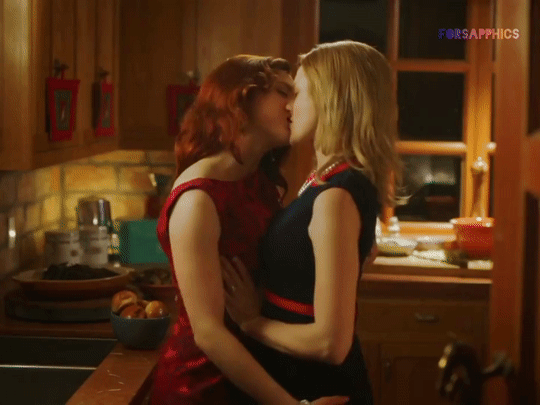

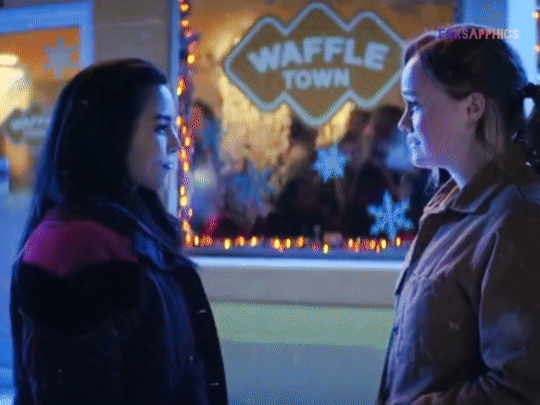


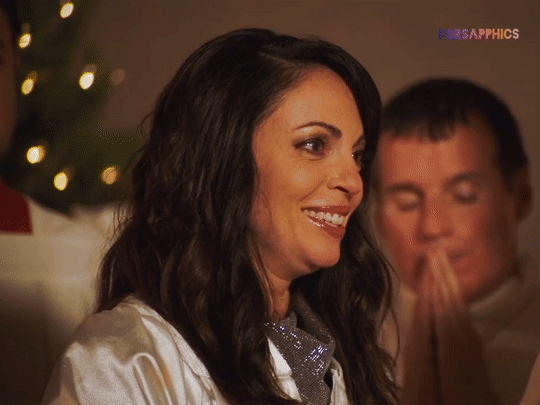
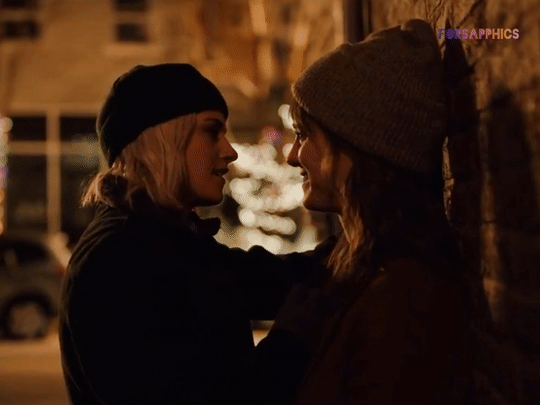


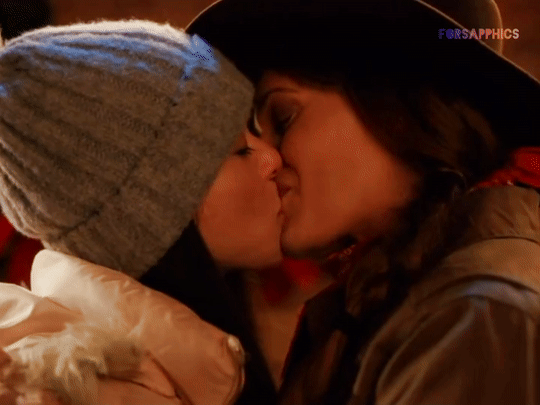

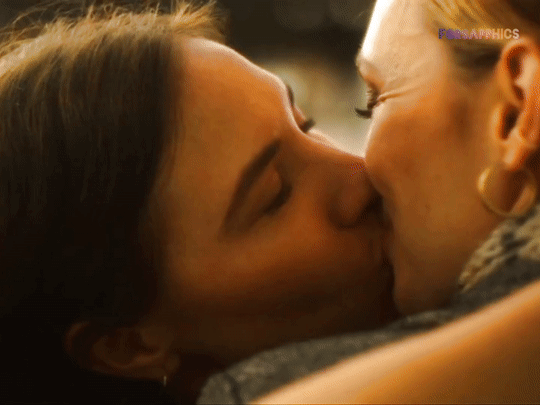
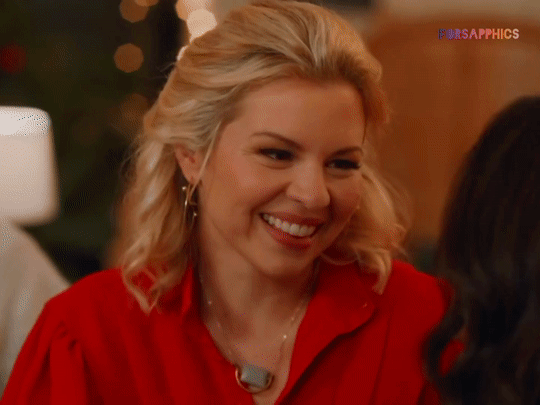
Carol (2015) — dir. Todd Haynes // Snapshots (2018) — dir. Melanie Mayron // Lez Bomb (2018) — dir. Jenna Laurenzo // Let It Snow (2019) — dir. Luke Snellin // Season of Love (2019) — dir. Christin Baker // City of Trees (2019) — dir. Alexandra Swarens // A New York Christmas Wedding (2020) — dir. Otoja Abit // Happiest Season (2020) — dir. Clea DuVall // The Christmas Lottery (2020) — dir. Tamika Miller // Every Time a Bell Rings (2021) — dir. Maclain Nelson // Christmas at the Ranch (2021) — dir. Christin Baker // Under the Christmas Tree (2021) — dir. Lisa Rose Snow // Looking for Her (2022) — dir. Alexandra Swarens // Friends & Family Christmas (2023) — dir. Anne Wheeler
#carol#carol 2015#snapshots#lez bomb#let it snow#season of love#city of trees#a new york christmas wedding#happiest season#the christmas lottery#every time a bell rings#christmas at the ranch#under the christmas tree#looking for her#friends & family christmas#friends and family christmas#wlw#sapphic#romcoms#christmas romcom#happy christmas eve#happy christmas eve sapphics <3
507 notes
·
View notes
Text
youtube
Oliver Nelson - Stolen Moments
As Oliver Nelson is known primarily as a big band leader and arranger, he is lesser known as a saxophonist and organizer of small ensembles. Blues and the Abstract Truth is his triumph as a musician for the aspects of not only defining the sound of an era with his all-time classic “Stolen Moments,” but on this recording, assembling one of the most potent modern jazz sextets ever. Lead trumpeter Freddie Hubbard is at his peak of performance, while alto saxophonists Nelson and Eric Dolphy (Nelson doubling on tenor) team to form an unlikely union that was simmered to perfection. Bill Evans (piano), Paul Chambers (bass), and Roy Haynes (drums) can do no wrong as a rhythm section. “Stolen Moments” really needs no comments, as its undisputable beauty shines through in a three-part horn harmony fronting Hubbard’s lead melody. It’s a thing of beauty that is more timeless as the years pass.
40 notes
·
View notes
Text
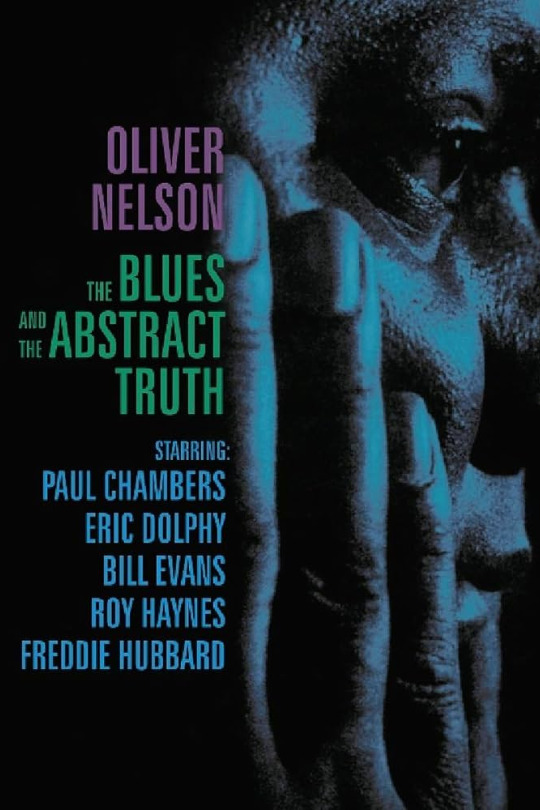
Oliver Nelson – The Blues and the Abstract Truth
The Blues and the Abstract Truth is an album by American composer and jazz saxophonist Oliver Nelson recorded in February 1961 for the Impulse! label. It remains Nelson’s most acclaimed album and features a lineup of notable musicians:
Freddie Hubbard – trumpet
Eric Dolphy – alto saxophone; flute
Oliver Nelson – tenor & alto saxophone
George Barrow – baritone saxophone
Bill Evans – piano
Paul Chambers – bass
Roy Haynes – drums
25 notes
·
View notes
Text
An audience with... John Paul Jones
(from Uncut, April 2010 - link)
You’re stuck on a deserted island, you have one instrument you can bring. It is: a) piano, b) bass or c) mandolin? (Gary Attersley, Ontario, Canada)
Oh… that’s horrible! I’ll probably get Hugh Manson – the guy who builds all my bass guitars – to build me some monstrous instrument that encapsulated all three! Hugh and his brother Andy Manson once actually designed me a triple-necked guitar with 12-string guitar, six-string guitar and mandolin on it! Andy also designed a triple-necked mandolin. But I guess if it really came down to it on a desert island, it would have to be the piano, because you can do so much on it. You’re a whole band. The bass is not much fun on your own.
John, it’s so good to see you so engaged with today. Any advice for old farts who can’t move on? (Andrew Loog Oldham)
Who are you calling an old fart? I dunno, Andy, you tell me! Ha ha. He’s done a good job of staying up to date. Andrew, of course, gave me the name John Paul Jones. I was John Baldwin, until Andrew saw a poster for the French film version of John Paul Jones. I thought it ’d look great in CinemaScope, as I wanted to do music for films. I imagined it saying “Music By John Paul Jones”, over the whole screen. I never realised then that he was the Horatio Nelson of America!
I know that you’ve been getting heavily into bluegrass lately – who are some of your favourite bluegrass artists of all time? (Ryan Godek, Wilmington, Delaware)
Apart from Bill Monroe, you mean? Oh, there’s loads. I’m friends with the Del McCoury band, I love that style of classic bluegrass. I love Sam Bush’s Newgrass stuff. And of course there’s Nickel Creek, Chris Feely, Mike Marshall. I love it all, really. One thing I like about bluegrass is that you don’t require amplifiers, drums and trucks. You can pull an instrument out of a box and get on with some instant music making. I carry a mandolin around wherever I go. I also like the fact bluegrass musicians play more than one instrument. There’s a tradition of them swapping instruments. In bluegrass bands I swap between double bass, fiddle and banjo.
One Butthole Surfers anecdote, please? (Dave Grohl)
Ha! I was brought in to produce the Butthole Surfers’ 1993 album, Independent Worm Saloon. I guess it was to give it a heavy rock vibe, but it didn’t work like that. They were actually incredibly hard-working in the studio, but I do recall running up a phenomenal bar-bill at the San Rafael studio. And then there was Gibby [Haynes, Butthole Surfers’ frontman] and his… eccentric studio behaviour. Gibby did one vocal take shouting into his guitar. He held it out in front of his face and screamed at it. Ha! He was trying to find out if it picked up through the pick-ups, which it kind of did. And that was pretty good.
How’s the violin coming along? (Sean, Berkshire)
I started about three years ago. With the guitar, or the piano, you can sound OK quite quickly. With the violin, it takes much longer. Once you get past the first six months of scraping, of muttering to yourself, “What is this fucking horrible noise on my shoulder?” you get the odd musical bit, and you think, ‘Oh, this is starting to get good.’ And you continue with it for a while. I’m getting into country fiddle playing, Celtic folk songs, a bit of swing. Basic stuff, but very satisfying.
Why not record a second ‘Automatic For The People’ with REM? (Franz Greul, Austria)
They haven’t asked me! But doing the string arrangements for that album was a great experience, actually. They sent me the demos of their songs, and we went into a studio in Atlanta, with members of the Atlanta Symphony Orchestra. They were great songs, something you can really get your teeth into as an arranger. And I’ve been good friends with them ever since.
How did you first meet Josh Homme? And is he still a notorious party monster? (Rob Hirst, Kippax, Leeds)
Well, I think we’ve all calmed down rather a lot. Dave introduced me to Josh at his 40th birthday party. It was a ridiculous themed place where they have jousting with knights. As Dave said, it was like somewhere you’d have your 14th birthday party. Or maybe even your 4th. Anyway, Dave sat Josh and I together for a blind date. Which was reasonably embarrassing for both of us, surrounded by people going “prithee this” and challenging each other to duels. But we survived the trauma and went into the studio the next day, and just started jamming. And I knew immediately it was going to be something special.
If Them Crooked Vultures had Spice Girls-like nicknames what would they be? (Paul Jones, Liverpool)
Dave would be Smiley Vulture. He can’t stop grinning. Josh would be Slinky Vulture. He’s a slinky kinda guy. And I’d be Speedy, I guess. Or Jumpy. So there you go. Smiley, Slinky and Speedy. Or does that sound more like the dwarfs?
I remember you being a pretty funky bass genius back in the day! What memories do you have of those sessions? (Donovan)
The sessions with Don and Mickie Most were great, because we were given a free hand. I usually got leeway, because I was the sort of Motown/Stax specialist, so producers in the mid ’60s would get me in for cover versions of American records, and none of them could write bass parts convincingly enough, so I was London’s answer to James Jamerson, I guess! And I was certainly encouraged to get kinda… funky when I worked with Donovan.
How did it feel to see Jimmy Page and Robert Plant venture off in their own project in the ‘90s without mentioning a word of it to you? (Danny Luscombe, Hull)
Oh yeah, I was pissed off about it. The surprise was in not being told. It’s ancient history now, but it was a bit annoying to find out about it while reading the papers. It came just after Robert and I had been discussing the idea of doing an Unplugged project. Then I’m on tour in Germany with Diamanda Galás, I turn on the TV and see Robert and Jimmy doing it, with someone else playing all my parts! I was pissed off at the time. You would be, woudn’t you? But… it’s all in the past, isn’t it?
Did you listen to much work by Josh Homme or Dave Grohl before you were contacted in relation to joining Them Crooked Vultures, and if so, how did you honestly rate it? (Ralph Ryan, Lisronagh, County Tipperary)
I did like the Foo Fighters and Queens Of The Stone Age, before I’d met either of them. There’s a tendency for people – especially musicians from my generation – to say that there has been this terrible decline in musicianship, that today’s bands haven’t got the chops, blah blah blah. But that’s not true at all. There’s always some people for whom technique on an instrument isn’t necessary. They can get their ideas across without being able to have the chops. But Josh really does have the chops, he just doesn’t feel the need to flash them about all the time. In fact, there were a few riffs he gave me that I had to simplify, because they were bloody difficult to play. I really had to work at it, where he could just flick it off. He is an astonishing musician.
Were you serious when you told Peter Grant that you wanted to jack it in to become choirmaster at Winchester Cathedral? (Brian Fisher, Manchester)
Ha! That was a tongue-in-cheek joke, although I was serious about leaving Led Zeppelin in 1973 unless things changed. But Peter did sort things out pretty quickly. What kind of choirmaster would I have made? A bloody good one! Listen, any way that they’ll pay you for making music is just the best situation in the world. I’d do it for nothing. I don’t care what music it is. I just love it all. The rubbing of notes together. I love it all. I would be very passionate about whatever I decided to do.
What was the worst session you ever did as a jobbing session player? (Adam Burns, Castleford, West Yorkshire)
I generally have fun memories of that time. I’d criss-cross London playing two or three sessions a day, going between Trident and Olympic and Abbey Road and Philips in Marble Arch, you know. You’d be backing Shirley Bassey, Cat Stevens, Lulu, whoever was paying you. The worst experience was a Muzak session. With Muzak sessions, the music was deliberately boring. I distinctly remember one session where I embellished the bass part a little bit, just so that it wasn’t so boring for me to play. They said, “No, you can’t do that. Any interest in the music will distract people’s attention from when they’re meant to be eating.” Or standing in a fucking lift. For fuck’s sake! So I was like, “OK, thanks, bye!”
#john paul jones#jonesy#led zeppelin#robert plant#planty#jimmy page#pagey#john bonham#bonzo#60s#70s#70s rock#70s music#rock music#ourshadowstallerthanoursoul
38 notes
·
View notes
Text

Patsy Cline - Crazy (Stereo) (1961)
Willie Nelson
from:
"Showcase" (Stereo LP)
"Crazy" / "Who Can I Count On?" (Single)
Country | Ballad | The Nashville Sound
JukeHostUK
(left click = play)
(320kbps)
Personnel:
Patsy Cline: Lead Vocals
Studio Musicians:
Nashville's A-Team:
Floyd Cramer: Piano
Owen Bradley: Organ
Walter Haynes: Steel Guitar
Randy Hughes: Acoustic Guitar
Grady Martin: Electric Guitar
Harold Bradley: 6-String Electric Bass
Bob Moore: Acoustic Bass
Buddy Harman: Drums
The Jordanaires: Backing Vocals
Produced by Owen Bradley
Recorded:
@ The Bradley Film and Recording Studio
in Nashville, Tennessee USA
on August 21, 1961
Released:
on October 16, 1961
Decca Records
12 notes
·
View notes
Text
Oliver Nelson, The Blues and the Abstract Truth
youtube
Cascade
Oliver Nelson, The Blues and the Abstract Truth
Order of solos: Hubbard, Evans
3 notes
·
View notes
Text
The Blues and the Abstract Truth: Exploring Oliver Nelson's Iconic Jazz Masterpiece
Introduction:
In the lengthy history of jazz, certain albums stand as timeless masterpieces that define an era and capture the essence of the music’s creative spirit. Oliver Nelson’s “The Blues and the Abstract Truth” is undeniably one such album. Released in 1961, this iconic recording represents a pinnacle of jazz composition and improvisation, blending elements of blues, swing, and…

View On WordPress
#Bill Evans#Classic Albums#Eric Dolphy#Freddie Hubbard#George Barrow#Jazz History#Oliver Nelson#Paul Chambers#Roy Haynes#The Blues and the Abstract Truth
0 notes
Text

Reba McEntire Fancy, the night the lights went out on Georgia which is a cover but it's basically her song. Willie Nelson cowboys are frequently secretly fond of each other, blue eyes crying in the rain. Carrie Underwood before he cheats, cowboy Casanova. Morgan wallen last night, God made a bar. Walker Haynes Fancy like, fancy like holiday remix.
It's bad.
10 notes
·
View notes
Text

Movie Review: “Long Story Short: Willie Nelson 90”
“Long Story Short: Willie Nelson 90” is so long …
HOW LONG IS IT, MR. SOUND BITES?
“Long Story Short: Willie Nelson 90” is so long, the producers built in an intermission - a “4:20 break,” they called it - about halfway through the film’s three-hour run time. Oddly enough, the manager of the theater where the film debuted June 11 - encore showings are slated for June 13 and 14 - frowned upon those of us who took the reason for the pause literally, meaning we’ll have to wait for the home-video release for a real 4:20 break.
But it was needed, as the movie - edited down from Nelson’s April 29-30 all-star concerts/90th-birthday celebrations at the Hollywood Bowl - is far too long. For all the highlights, there are less-than-thrilling appearances from Beck, Nathaniel Rateliff, the Lumineers (singing “Pretty Paper” in April), Miranda Lambert, Sheryl Crow, George Strait, et. al that do little more than make the movie house chairs feel even more uncomfortable.
Built around some 40 performers, occasionally solo or with their own groups, but mostly backed by a house band that included music director Don Was on bass, Greg Leisz on pedal steel, former Black Crowes guitarist Audley Freed, soon-to-be-former Punch Brother Gabe Witcher on fiddle, Belmont Tench and Booker T. Jones on keys, Mickey Raphael on harmonica and the McCrary Sisters on background vocals, “Long Story Short” works despite its flaws.
And how could it not? With a band like that, a guest list that would render even the most famous person starstruck (Dave Matthews, who turned in an appropriately weird solo version of “Funny How Time Slips Away,” sure was) and a bunch of Nelson’s greatest songs - plus Warren Haynes singing “Midnight Rider” and Jack Johnson on the hilarious “Willie Got Me Stoned and Took All My Money” - the highlights are too many to mention.
But then there are the highest of the high, which follow in order of appearance:
* Billy Strings opening the show just as Nelson would and setting the tone with “Whiskey River.” The only thing wrong with this was saving one of the best for first, which is not how these things are supposed to work.
* Particle Kid - aka Micah Nelson - performing “Die When I’m High (Halfway to Heaven),” written from his father’s perspective, with Daniel Lanois playing pedal steel without picks. The effect was both comedic and ethereal.
* Rodney Crowell, Emmylou Harris, Waylon Payne and Raphael collaborating on Crowell’s “It Ain’t Over Yet,” a spellbinding song about aging gracefully in the music business.
* Rosanne Cash singing “Loving Her was Easier (Than Everything I’ll Ever Do Again)” to - and with - Kris Kristofferson while changing the word her to you. At 86, Kristofferson seems older than the birthday boy, making this heartfelt performance the stuff of lumps in throats as the two stood with arms around each other and sharing friendly kisses before Cash melted into the arms of her father’s former Highwaymen bandmate.
* Lukas Nelson channeling his father as a young man - both on guitar and at the mic - on an eerie solo performance of “Angel Flying Too Close to the Ground.”
* Willie singing “Stardust” while trading solos with Jones.
* Norah Jones performing “Down Yonder” in memory of “little sister” Bobbie Nelson.
* The Avett Brothers - sans house band - admonishing everyone to “Pick up the Tempo.”
* Gary Clark Jr. giving a guitar clinic and sharing the spotlight with Raphael on “Texas Flood,” which he dedicated to both Willie and Stevie Ray Vaughan.
* Bob Weir singing - really singing his heart out - “Blue Eyes Crying in the Rain” while Strings, who looked as if he might shit himself with glee, played Willie’s parts on acoustic guitar.
* Jamey Johnson proving himself an incredible crooner on “Georgia on My Mind” while Haynes chipped in slide guitar as only he plays it.
* Neil Young, Stephen Stills and all three Nelson boys giving an emphatic affirmative to Young’s musical question: “Are there Any More Real Cowboys.”
* Snoop Dogg, with a gold mic and an unlit blunt in his hands, joining Willie for “Roll Me up and Smoke Me When I Die.”
* Willie’s strongest vocal performance, alongside Keith Richards - who sang better than he has in ages - on “We Had it All.” Bonus: Richards’ eye makeup was a gas, gas, gas.
The thing ended with every performer on stage for “On the Road Again” followed by everyone singing “Happy Birthday to You” with Willie singing along and emphasizing the word, ME.
There’s such a thing as too much and “Long Story Short” - a misnomer of the highest degree - has it. But with such a diverse guest list that spans generations and genres, it’s unlikely anyone other than the number-loving Willie Nelson himself would enjoy every number. And if Willie had a happy 90th, then it’s OK to spend an hour more than necessary in a theater to celebrate in his honor.
But it’ll be even better at home, with a real 4:20 break and a remote control equipped with a fast-forward button.
Grade card: “Long Story Short: Willie Nelson 90” - B
6/11/23
#long story short: willie nelson 90#willie nelson#booker t#dave matthews#warren haynes#jack johnson#billy strings#particle kid#daniel lanois#rodney crowell#emmylou harris#rosanne cash#kris kristofferson#lukas nelson#norah jones#the avett brothers#gary clark jr#bob weir#jamey johnson#neil young#stephen stills#snoop dogg#don was#the black crowes#benmont tench#the punch brothers#beck#nathaniel rateliff#the lumineers#miranda lambert
2 notes
·
View notes